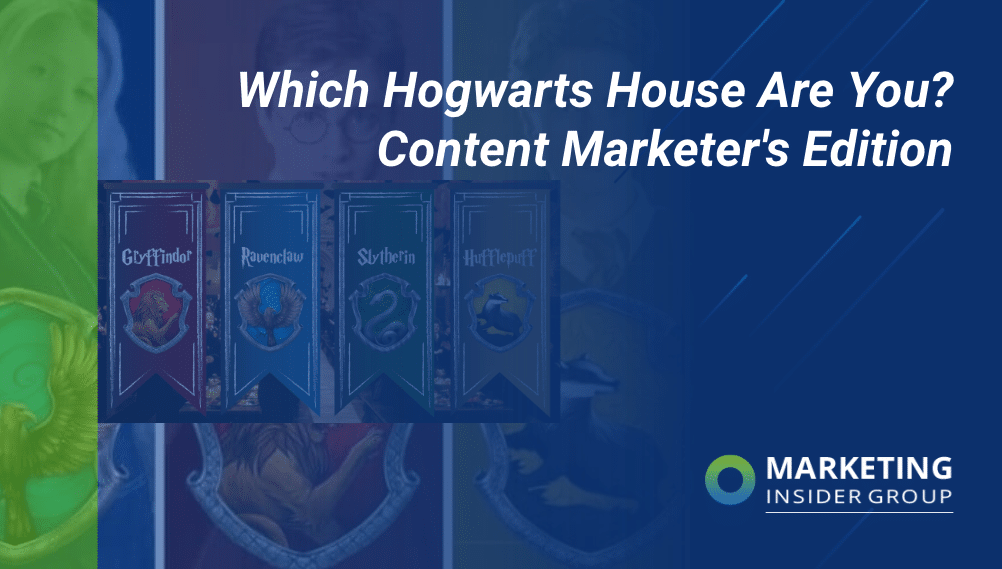
Which Hogwarts House Are You? Content Marketer’s Edition
Every marketer today is hearing about the importance of brand personality — or the way a brand is personified in human terms. In both the B2B and B2C worlds, brand personality is more important than ever as buyers seek a real connection to the companies they purchase from.
Here’s why:
- 84% of buyers want to be treated like actual people, not numbers
- 82% say they want brand values to align with their own
- 73% say they’re more likely to buy when they love the brand
To build the type of emotional connection (yes, even for business buyers) your customers now seek, you need an authentic brand personality that exemplifies who you are.
Fortunately for you, Marketing Insider Group is here to help evaluate your brand personality by the only standard that really matters — your Hogwarts House, of course.
If the all-powerful Sorting Hat can put human (okay, fictional wizard) students in the right place, it can do the same for your brand.
But honestly, we’re not totally joking here — some experts suggest that the Hogwarts Sorting Hat is just as accurate (and even more consistent) than the Myers-Briggs test for understanding personality traits.
And when you know your true personality, you can embrace it and be more authentically you as you engage with your audience.
So — is your brand a brave, determined Gryffindor? A wise and brainy Ravenclaw? A trustworthy and hardworking Hufflepuff? Or a shrewd, ambitious Slytherin?
You’re about to find out!
The Content Marketer Sorting Hat — Which house are you?
Gryffindor: Brave and Determined
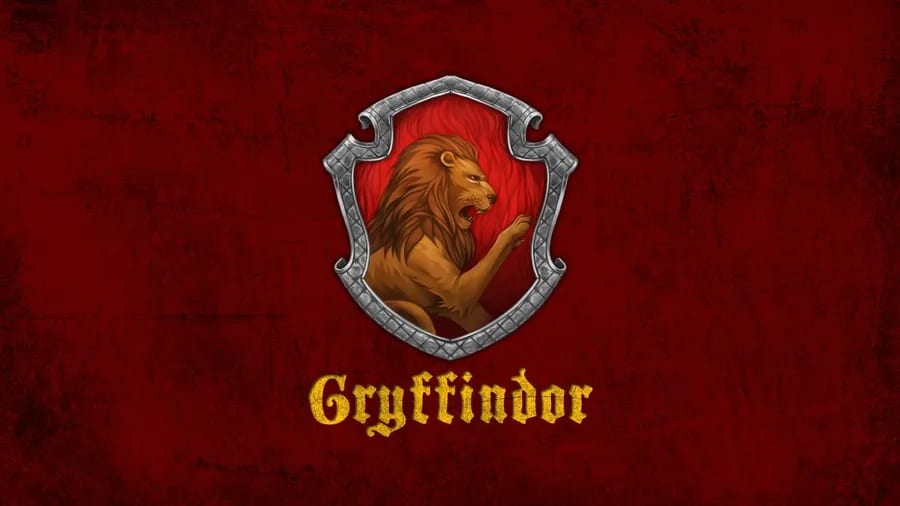
Everybody wants to be a Gryffindor. Not only is it Harry Potter’s house, but Gryffindors are the most courageous, determined students at Hogwarts according to their official Wizarding World description.
Gryffindors are brave enough to face danger when it arises and willing to challenge authority when it’s warranted. They stick up for the little guy, and take action, even if they don’t have all the time they want to think it through.
Those traits, when you translate them to brand personality, can result in a serious competitive edge. Why? Because while many people wish they could be Gryffindors, they’re not all willing to take the risk that comes with acting like one.

That’s why when we think about brands who embody the Gryffindor spirit, we think of serious content marketing trailblazers — ones whose daring content has made them well known by just about everyone.
Let’s look at a few Gryffindor-esque content examples.
Red Bull
It’s hard to think of daring brands without thinking of Red Bull — especially when it comes to content marketing. They’re one of the first brands who understood the importance of selling an experience rather than a product, and they used their content as the main avenue to do it.
Whether it’s through their massive YouTube library, engaging social media, or in-person sporting events, Red Bull has mastered the art of telling people how their product can make them feel — and making them want to experience it firsthand.
As a result, we all know today that Red Bull gives you wings.
Nike
At first glance, it’s easy to think of Nike in a similar way to Red Bull. Their “Just Do It” slogan became synonymous with the likes of Michael Jordan in the 80s and 90s, making them the brand of the world’s best athletes.
But what we find most Gryffindor about Nike is their more recent emphasis on the fact that greatness isn’t just born — it can also be made. Even “the little guys” can be great when they put their best foot forward and work toward their goals.
This message is huge for building connection with customers. It tells them Nike isn’t just for great athletes and huge superstars, but that it’s what helps to make them (and, by the way, that anybody can “Just Do It”).
Nothing says this more than their official “Find Your Greatness” campaign.
AirBnB
Gryffindor brands don’t have to be about athletic prowess, and AirBnB is a perfect example of how daring can mean just taking an innovative content leap. Not only did they flip an ages-old business model (the traditional hotel) on its head by just existing, but they made their content totally about their target audience.
How? By asking them to create it.
AirBnB was a pioneer of user-generated content (UGC), now a staple with brands who want to resonate with consumers. By asking customers to share their AirBnB stays and reposting the content on their brand platforms, they proved authentic and motivated people to find their own perfect AirBnB vacations.
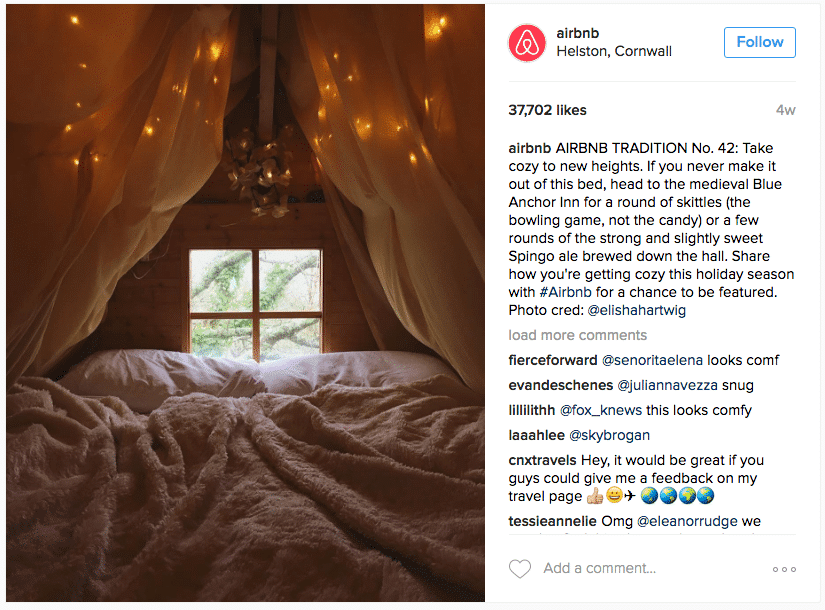
Image Source: Pixlee TurnTo
Ravenclaw: Brainy and Wise

Ravenclaws are known as the brainy students of the bunch. They use their wit and a knack for quick learning to navigate tough situations and get ahead. They know their stuff, always able to add to the conversation with interesting facts and settle any debate by acting as the expert.
But intelligence isn’t the Ravenclaw’s only advantage — they’re also known to be innovative and overachieving, natural problem solvers, and charmingly eccentric. Perhaps most importantly, Ravenclaws are unapologetically themselves, secure in their own knowledge over anyone else’s.
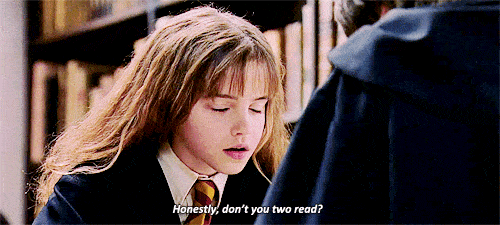
When we think about brands, this type of confidence and authenticity is essential. It translates to thought leadership — being the type of brand people turn to automatically when they need answers or solutions.
Here are some Ravenclaw brands we love:
Moz
Moz is a comprehensive SEO software publisher that helps leading brands to optimize their content — so they know a thing or two about how to do it. But rather than keep their SEO smarts to themselves, they decided to share it far and wide with Whiteboard Fridays.
Whiteboard Fridays is Moz’s weekly YouTube series (now about 500 videos) covering SEO-related topics to help their audience improve content performance. They break down would-be complex topics in ways average marketers can understand. Instead of gatekeeping the technical SEO strategies that are their specialty, Moz makes them accessible for everyone.
The result? People trust them more. They’ve established themselves as go-to experts. And undoubtedly, when Whiteboard Friday viewers need SEO help, Moz comes to mind as one of their top potential providers.
Merriam-Webster
What gets more Ravenclaw than the dictionary? And if you think reading the dictionary sounds boring, Merriam-Webster’s social media content is here to tell you to think again. They’re keeping the dictionary relevant to modern audiences with #WordofTheDay, #WordofTheWeek, and interactive quizzes that provide a fun way for people to test their vocabulary prowess.
They’re even keeping pace with hard-to-please Gen Z audiences (see: the definition of “yeet”).
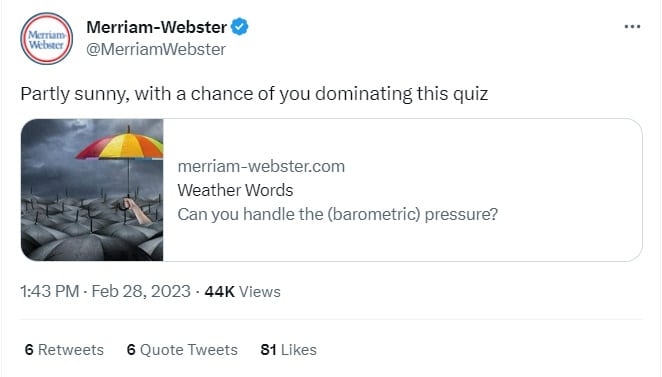
Image Source: Twitter
We couldn’t round out Ravenclaw brands without mentioning Google — the authority of all authorities on every topic a person could want to know about. Have a question? Can’t remember that important fact? Not a problem — just google it. Thanks to Google, everyone can be a fact-spouting Ravenclaw if they really want to be.
It’s worth mentioning that Google’s actual content is just as helpful as their search engine. The Google Search Central website and blog is chock full of resources to help content marketers and web developers optimize their performance and reach.
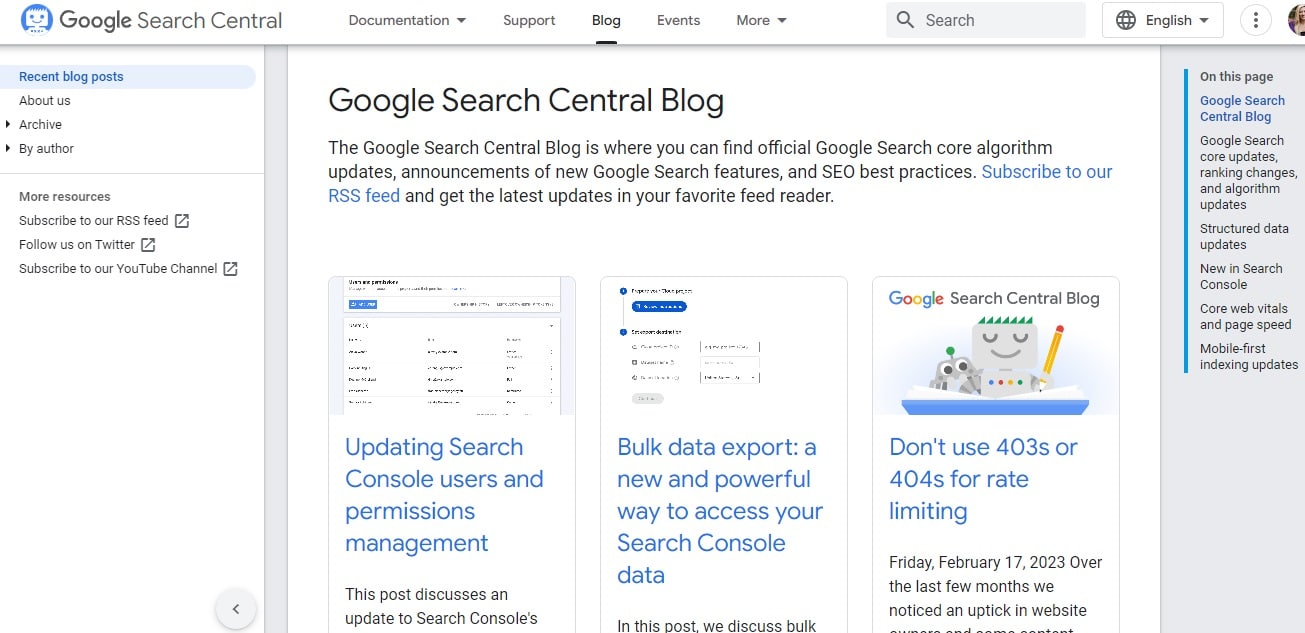
Image Source: Google
Hufflepuff: Trustworthy and Hardworking
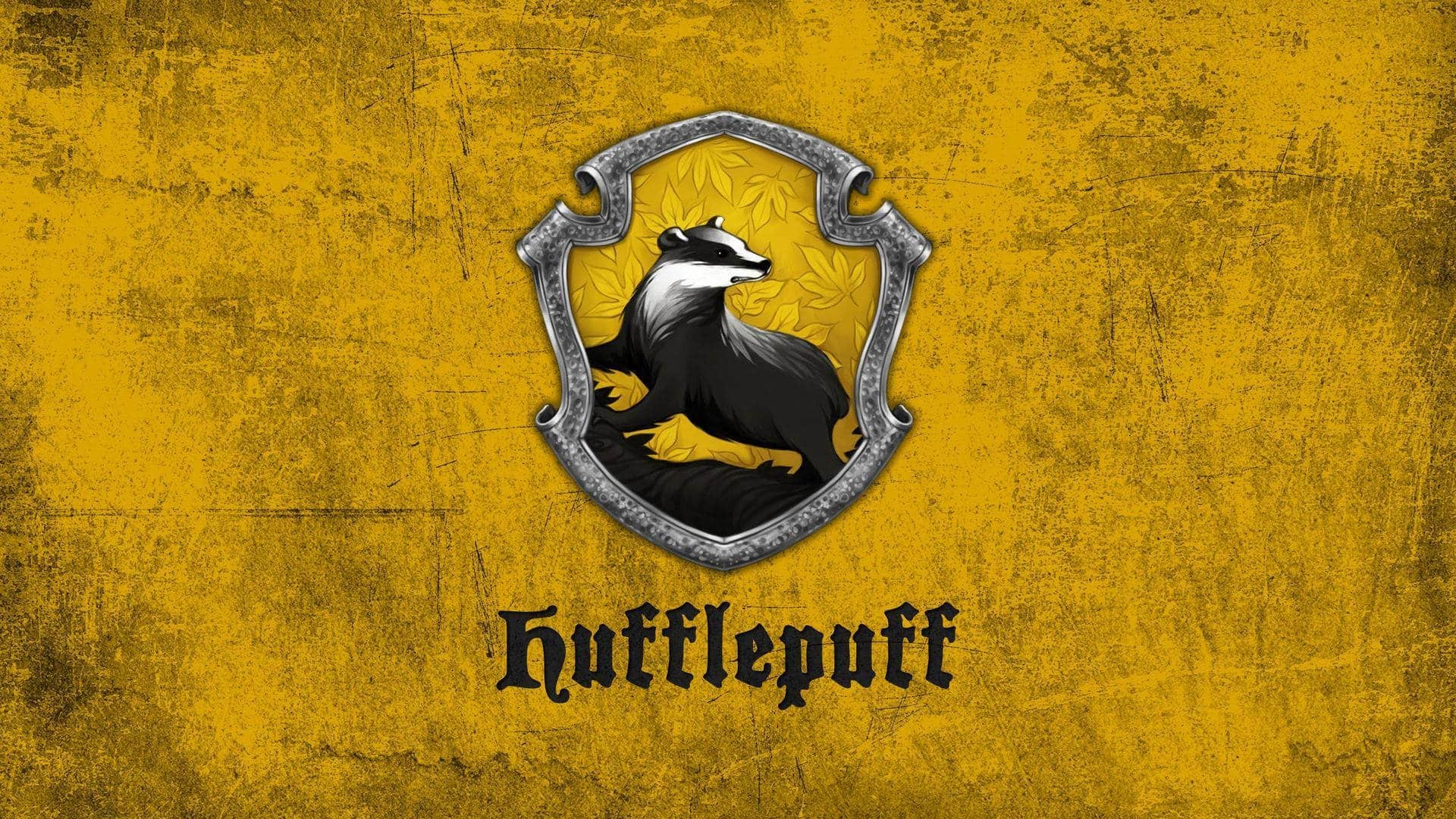
Hufflepuffs are the friends you can count on most. They’re loyal, hardworking, and humble, and they let their accomplishments speak for themselves rather than shouting them from the rooftops. And they’re onto something — after all, actions speak louder than words (in Wizardry school and in business).
Further (and not to be minimized) Wizarding World says that Hufflepuffs are known to have the best snacks.

The takeaway: People know they can trust a Hufflepuff, and for brands this is no small trait to have. When people trust a brand, they’re more likely to make a purchase, buy more frequently, stay loyal over time, and recommend the brand to others.
Let’s check out a few Hufflepuff brand examples:
General Electric
General Electric (GE) is 130+ years old, meaning it’s already got an advantage as far as familiarity with the public goes. But GE has never rested on its laurels when it comes to using marketing to create real connection with their audience — General Electric Theater was a groundbreaking show in the 50s and 60s that featured story segments and wove GE products in between.
Today, GE continues to show its savvy with their content marketing. They maintain the same reliable brand image they’ve had for more than a century, while translating it to modern content that audiences are looking for.
This is particularly true for their GE Reports, which tell real-world stories about how GE products are making an impact in the world across industries and geographic boundaries. In true Hufflepuff fashion, GE refrains from shouting about their products and features, instead leaning on human interest stories to make customers want to choose their brand.
The result is a sense from the public at large that GE is not just a brand, but an integrated part of the human experience.

Image Source: General Electric
John Deere
Also founded in the 1890s, John Deere is another trustworthy brand that’s been ahead of the content curve since its founding. They started publishing The Furrow in 1895 to share farming advice and stories, and today it’s published in 14 languages and over 100 countries.
Like GE Reports, the secret of The Furrow is that it doesn’t hard sell John Deere products. Its first priority is to deliver helpful resources to their audience, thus building the trust required for them to want to make a purchase.
In recent years, John Deere has expanded its content efforts to include UGC to demonstrate how their products are being used by current satisfied customers, further highlighting their brand authenticity and using storytelling (rather than overt advertising) to build their brand.
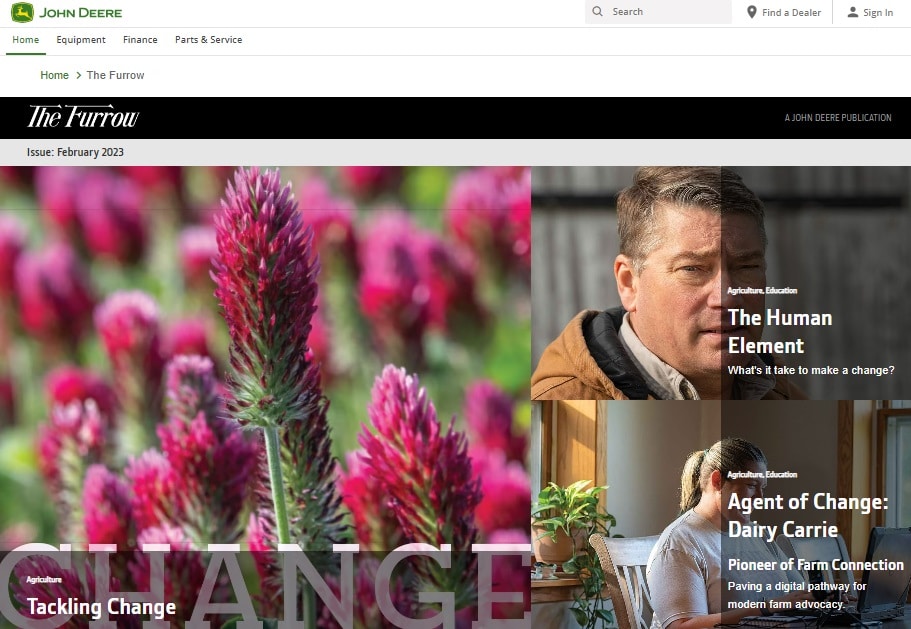
Image Source: John Deere
Marketing Insider Group
You didn’t think we’d leave ourselves out of the Sorting Hat fun, did you?! We may not be a century old, but at Marketing Insider Group, we strive to provide the type of reliable, consistent, high-quality content you need to grow your own brand.
We publish 5+ blogs every week covering topics our target audience cares about — everything from SEO tips to how to create high-value content to templates and examples (and more). For our clients, we aim to do the same with full-scale content services that help them generate leads and build search visibility that lasts.
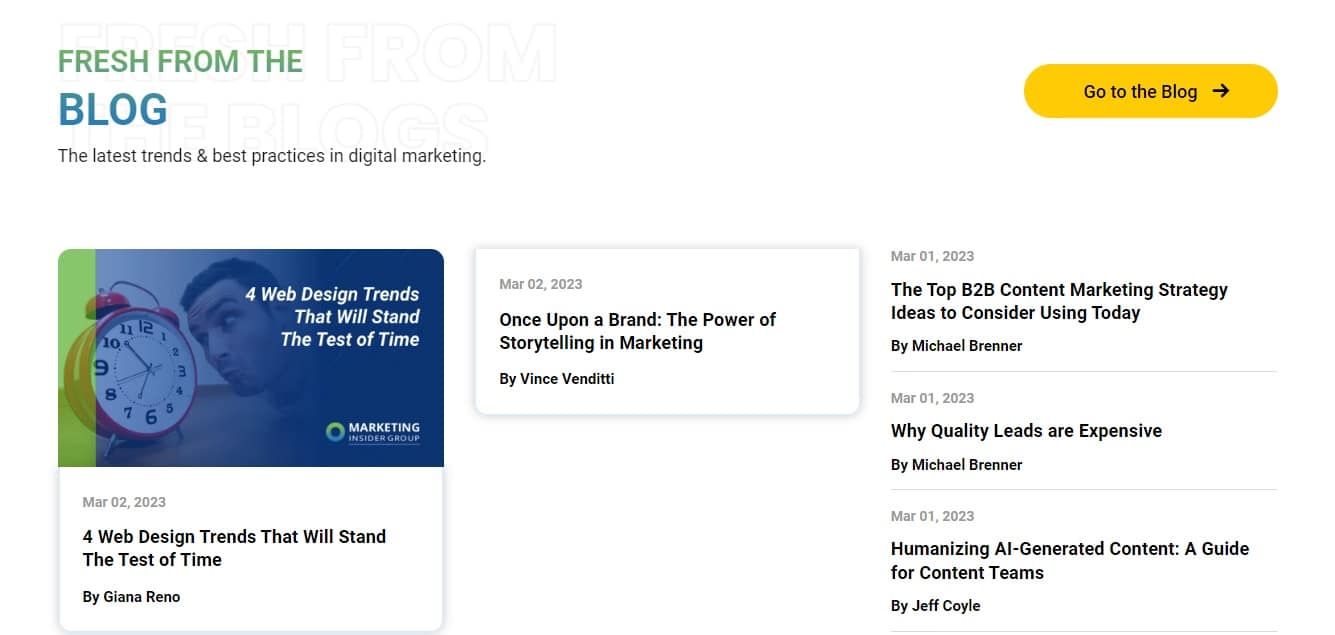
Image Source: Marketing Insider Group
Slytherin: Shrewd and Ambitious
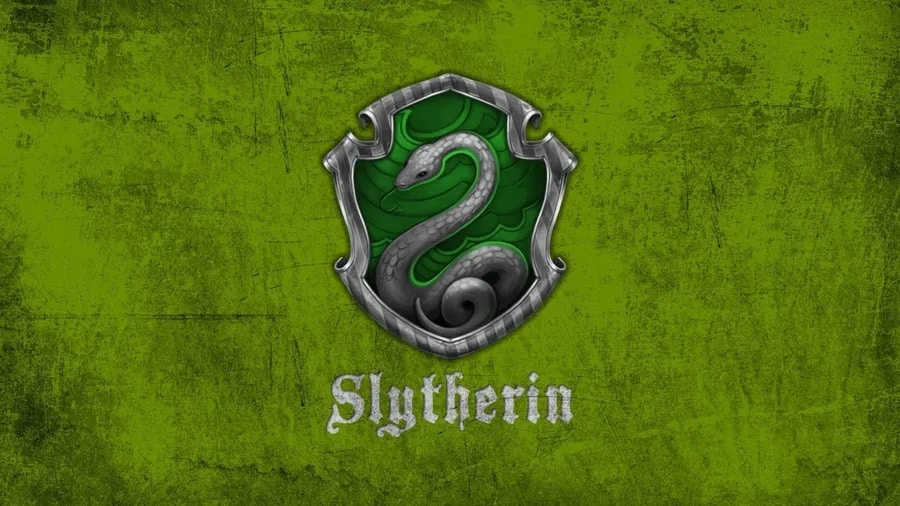
Slytherins get a bad rap thanks to the small problem of too many dark wizards graduating from their house. They’re known as troublemakers, but this is mostly just a misunderstanding of a Slytherin’s true nature. In reality, Slytherins are smart and ambitious — clever enough to stay a step ahead of their competition.
They do tend to keep their cards close to their chest and have a darker sense of humor. To some, this might seem to spell trouble, but it also gives Slytherins an advantage in most situations.
For brands, Slytherin qualities translate to edginess — a willingness to produce content that pushes the envelope and may even be controversial by some standards. They’re also not afraid to go directly at the competition to spell out why they’re the better alternative.

But Slytherin-esque brand content is also fun and engaging thanks to its unapologetic style.
Here are a few examples:
Dollar Shave Club
Dollar Shave Club exploded onto the scene with their first ad — now a viral sensation — poking fun at their direct competitors (with a side of slight political incorrectness). It grabbed attention right away.
Both their business model and the ad were risky for certain, but it worked because they got straight to the heart of a real problem in the razor market, and one that rang true for consumers: that brands were charging too much for product frills their customers didn’t actually need.
The day the ad launched, Dollar Shave Club’s website got so much traffic that it crashed, and the rest is history — the company was acquired in 2016 for a staggering $1B.
Apple
Apple is a clear (if not the) leader of the tech product market, and they’ve managed to do so while always maintaining a bit of a villain reputation. Part of this has been due to the fact that they’ve never been afraid to say outright that no competitors comes close to their quality, capabilities, and style.
They did it with comedy in their Mac vs. PC series that successfully made traditional PCs (and Microsoft in particular) look outdated and slow.
Spotify
Last but not least, we think Spotify is a sure Slytherin thanks to the shrewdness they show in competing with the likes of Apple and Amazon — without the adjacent massive platforms to depend on.
Spotify has managed to become known as the people’s choice for music consumption, largely because they’ve dialed into personalization. This is especially evident in their annual Spotify Wrapped campaigns, which automatically build playlists for each user based on their top listens from that year.
The real secret to success of Spotify Wrapped lies in its shareability — it encourages users to share their Wrapped playlists on social media (it earns a whopping 60 million shares each year), which undoubtedly earns the brand new sign ups and re-engagement from existing users.
That shows some serious Slytherin resourcefulness!
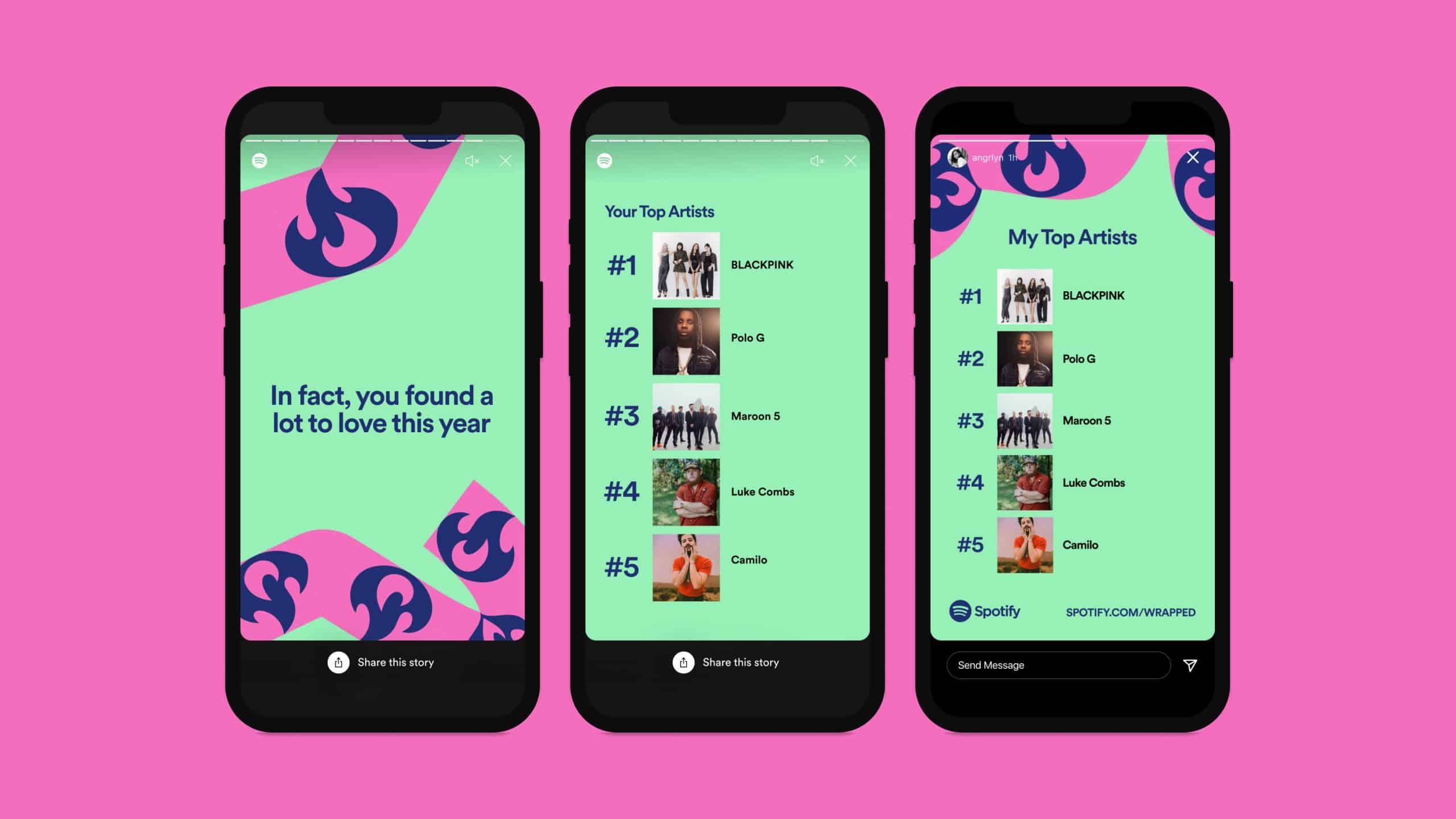
Image Source: Tech Crunch
So what’s the point?
This article was certainly written in a lot of fun, but also to impart a serious lesson from the Sorting Hat that brands would be smart to remember — that not all brand personalities are the same, and that’s the real beauty of (and secret to) successful content marketing.
The power of content lies not in any one specific trait or personality, but rather in knowing your unique strengths and being true to them in the content you deliver.
Considering your brand in the context of the four Hogwarts Houses is just one fun way to start thinking about what makes your brand authentically resonate with customers and discover new ways to showcase those traits to your audience.
So — which Hogwarts House is your brand? Tell us in the comments!
We are a top-ranked content marketing agency helping companies like yours to reach, engage and convert quality leads. Check out our SEO Blog Writing Service to learn more, or schedule a quick consultation with me to get started!






